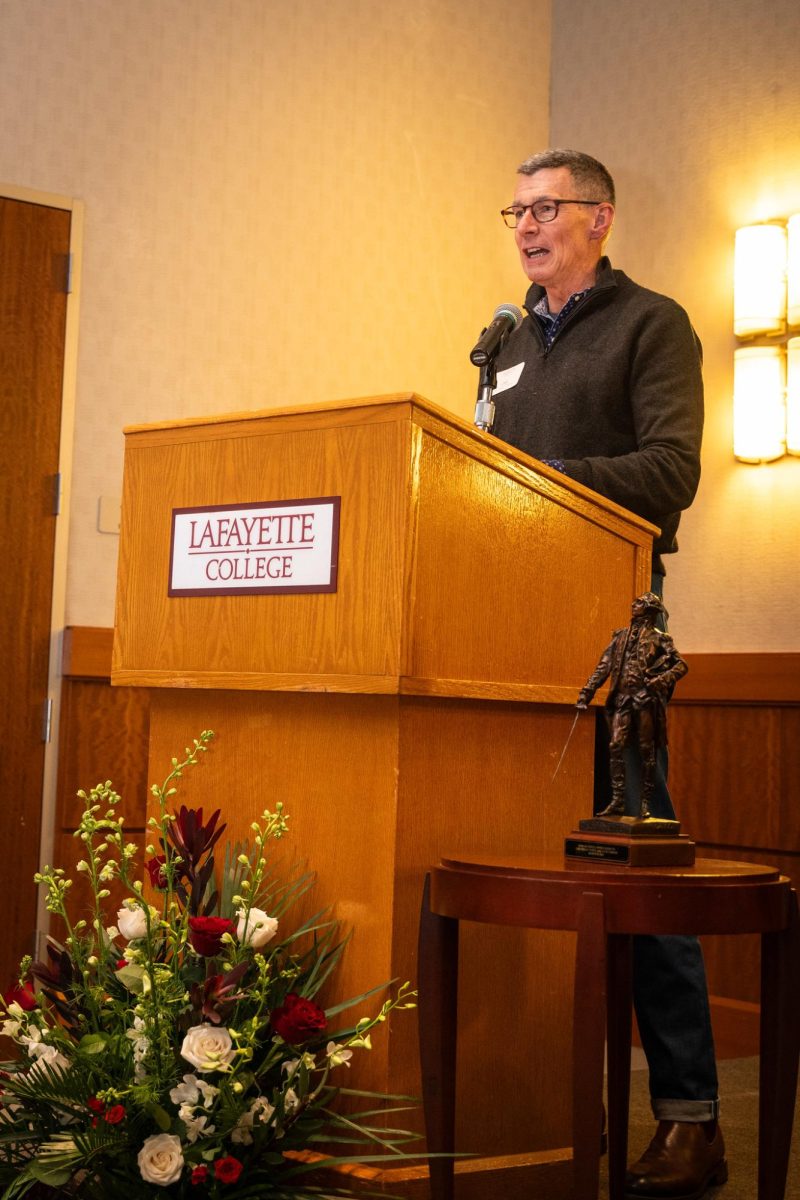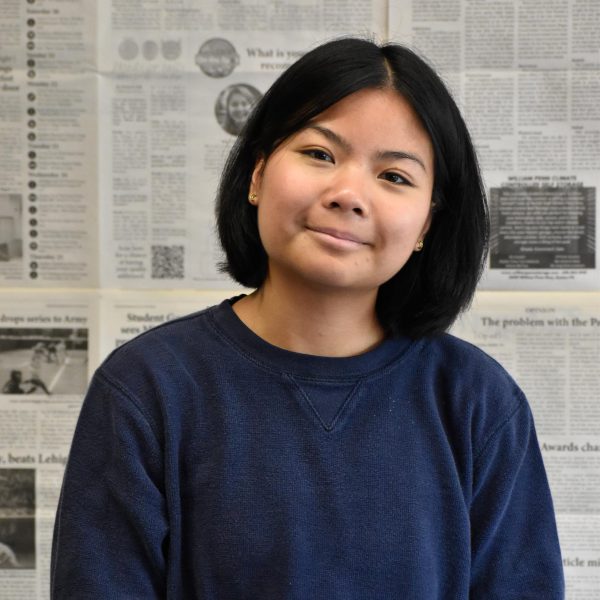Twenty-seven months after Chip Bergh ’79 and his wife donated $5.25 million to Lafayette College to begin the Bergh Family Fellows Program, the program has led to a large increase in the number of students studying abroad, pursuing research and finding internships with financial aid.
“The reality is not everybody has equal means, and this fellowship opportunity levels the playing field,” said Bergh, the former CEO and president of Levi Strauss & Co and a senior lecturer at Harvard Business School. “It shouldn’t be something that only the rich kids get to do.”
Every year since the donation, 200 students have received funding for various experiential opportunities from both inside and outside the college, according to Bergh.
He explained that picking the number 200 was meant to honor the college’s approaching bicentennial celebration in 2026. He attributed the idea to college President Nicole Hurd, calling her “one smart cookie.”
“This is the catalyst for others to join us in supporting experiential learning,” Hurd said.
The gift “is not just about transforming lives but also about inspiring others,” she added.
Funding from the Bergh Family Fellows Program is divided into three divisions — study abroad, research and internships — according to Academics Project Coordinator Millie Smith ’10.
Two years into the program, Smith pulled data from all three divisions to compare funding and participation numbers before the program’s establishment in the 2021-22 academic year and after the most recent award year in the 2023-24 academic year. Data showed a marked increase in participation and funding for study abroad interim trips. Smith found a 131% increase in the number of students who received interim trip grant funding and a 333% increase in total interim trip grant money awarded to students.
The Bergh Family Fellows program has directly combated the rising costs of travel associated with studying abroad, according to Rochelle Keesler, the director of international and off-campus education. The program offers funding only for summer and winter interim abroad trips, not trips over an entire semester.
Summer research and internships also saw increases in participation, according to Smith.
When comparing the summer before the establishment of the Bergh Family Fellows program and the summer of 2024, Smith found a 23% increase in the initial internship support applications received by the Gateway Career Center, a 26% increase in the number of students awarded internship support and a 95% increase in total funding awarded to students for internship support. She also discovered a 92% increase in student participation in student-faculty research.
Bergh and Hurd hope to expand the program, making it a more permanent feature of the college.
“The long-term goal is to not just say ‘this is a catalyst gift,’” Hurd said. “It’s also something that we want to endow and make permanent.”
Bergh admitted that at the beginning of the program, he was concerned there would be less student interest and that the program would end up “falling short” of the 200-student goal. The first award year funded only 167 students, according to Smith, but she attributed the lower number to the first year’s condensed time frame.
“Students who participated in the first year and had an amazing experience came back to school and talked about it,” Bergh said. “That created a wave for the second year, and now that’s creating a way for this coming year.”
Bergh Family Fellows have largely agreed on the impact of experiential learning in their time at college.
“The whole program is the main reason for both my career as a researcher and my future endeavors as a student,” said Lonan Jennings ‘27, a recipient of Bergh funding. He explained that the Bergh funding allowed him to work on a summer research project with an English professor and the Easton Public Library.
Any leftover money saved from the Bergh summer funding stipend will also allow Jennings to participate in a study abroad trip to Rome.
“I think it’s an amazing way to capitalize off all the experiences that Lafayette has to offer,” said Qwin Pisacane ‘25, who received a $5000 award to research diversity, equity and inclusion initiatives within civil engineering.
For Bergh, hearing these stories is the most rewarding aspect of the donation.
“I probably met maybe 20 of the students and heard their stories,” Bergh said. “I think nine of them — I was kind of keeping track — used the term ‘changed my life’ and that’s really what we wanted to do.”
Correction 2/27/2025: A previous version of this article stated that Chip Bergh is the CEO and president of Levi Strauss & Co. He is the former CEO and president of the organization.














































